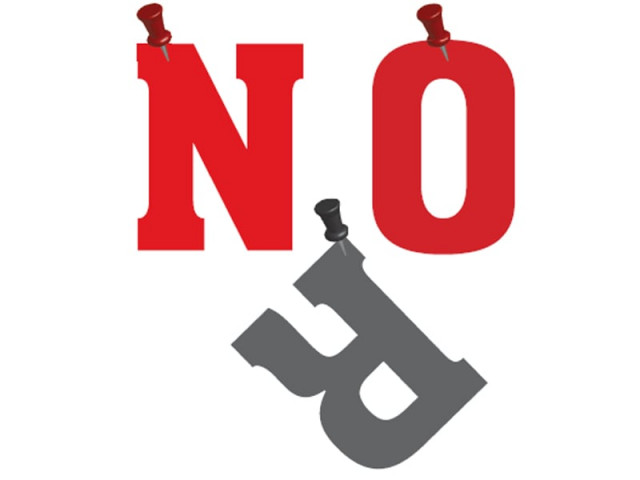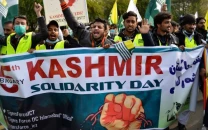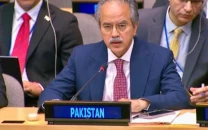Immunity vs NRO: How did the issue get so muddled?
Had SC dealt with immunity, prime minister would have no legal excuse for not implementing the NRO judgment.

The current contempt of court situation is the result of two major failings of two players: the Supreme Court and the prime minister.
The first failing can be identified in an otherwise excellent National Reconciliation Ordinance (NRO) judgment of the Supreme Court (Mobashir Hassan v The Federation of Pakistan (PLD 2010 Supreme Court 265)) – in which it does not take into account the newly acquired status of one of the beneficiaries of the NRO 2007, ie presidential immunity of Asif Ali Zardari.
The second failing is on the part of Prime Minister Yousaf Raza Gilani, because he did not apply to the Supreme Court to get direction on the presidential immunity immediately after the NRO judgment was delivered.
The President of Pakistan enjoys absolute immunity from criminal prosecution under Article 248(2) of the Constitution: “No criminal proceedings whatsoever shall be instituted or continued against the President ... in any court during his term of office” (emphasis added). The language used indicates that (a) the immunity is absolute and (b) new proceedings cannot be instituted and existing proceedings cannot be continued and must cease.
In its verdict (paragraph 169) the Supreme Court held: “We are of the opinion that the NRO, 2007 is void ab initio, therefore, the parties who have derived benefit shall not be entitled for the same from 5th October, 2007 and all the cases withdrawn under ... NRO shall stand revived immediately.” The court (paragraph 178) further ordered the federal government and all other competent authorities to take immediate steps to seek the revival of the cases in Switzerland. Between the NRO promulgation in 2007 and its invalidation by the Supreme Court in 2009, Zardari was duly elected President of Pakistan and his immunity thereby kicked in. The Supreme Court in its judgment did not explain why presidential immunity should not stand in the way of implementing its judgment.
Under customary diplomatic law, a serving head of state enjoys absolute immunity from the jurisdictions of other states except for grave criminal offences such as genocide and crimes against humanity. The British Highest Court, the House of Lords, in the case of R v Bow Street Metropolitan Stipendiary Magistrate and Others, ex parte Pinochet Ugarte (Amnesty International and others intervening) (No 3) [1999] 2 All ER 97 said: “It is a basic principle of international law that one sovereign state (the forum state) does not adjudicate on the conduct of a foreign state... This immunity extends to both criminal and civil liability... the head of state is entitled to the same immunity as the state itself’ (emphasis added).
In the Arrest Warrant of 11 April 2000 (Democratic Republic of Congo v. Belgium, paragraph 51), the International Court of Justice said: “The Court would observe at the outset that in international law it is firmly established that, as also diplomatic and consular agents, certain holders of high-ranking office in a State, such as the Head of State, Head of Government and Minister for Foreign Affairs, enjoy immunities from jurisdiction in other States, both civil and criminal” (emphasis added). New proceedings can be initiated or the previous ones can be resumed if a serving head of state waives the immunity. Such waiver must be voluntary and expressed. No court, municipal or international, can coerce him/her to waive immunity.
In the NRO verdict, the Supreme Court cited international law on corruption and some instances involving former heads of states but did not deal with immunity enjoyed by Zardari as a serving head of state. Had the Supreme Court dealt with immunity, today the prime minister would have no legal excuse for not implementing the NRO judgment.
And then there is the prime minister.
Gilani has also failed to get clear direction on the question of presidential immunity immediately after he was ordered to write to the Swiss authorities. If he were sincerely concerned with legal obstacles and had approached the Supreme Court in good time, he would have not ended up standing in the dock.
Both parties still have the opportunity to resolve this. The prime minister should apologise to the Supreme Court for the delay in implementing the NRO judgment and apply for clarity on presidential immunity under municipal and international law. The Supreme Court is constitutionally bound to give either the benefit of law as it stands today to the president or give reasons why he is denied such benefit.
Those who attack the law on immunity, I would say it is a different matter for a different forum for another day. The author is a Senior Lecturer in Law at the University of Hull, United Kingdom.
Published in The Express Tribune, February 5th, 2012.



















COMMENTS
Comments are moderated and generally will be posted if they are on-topic and not abusive.
For more information, please see our Comments FAQ